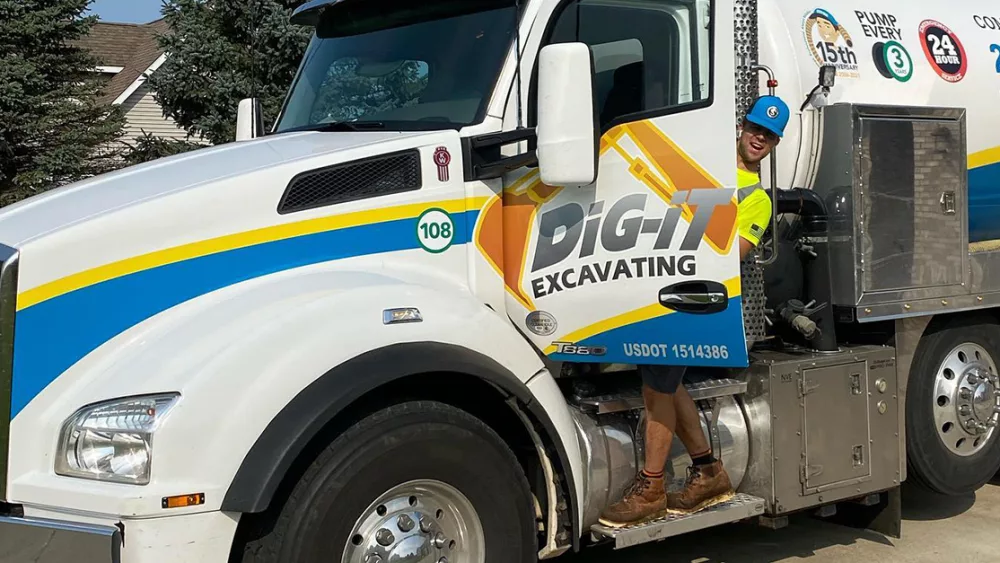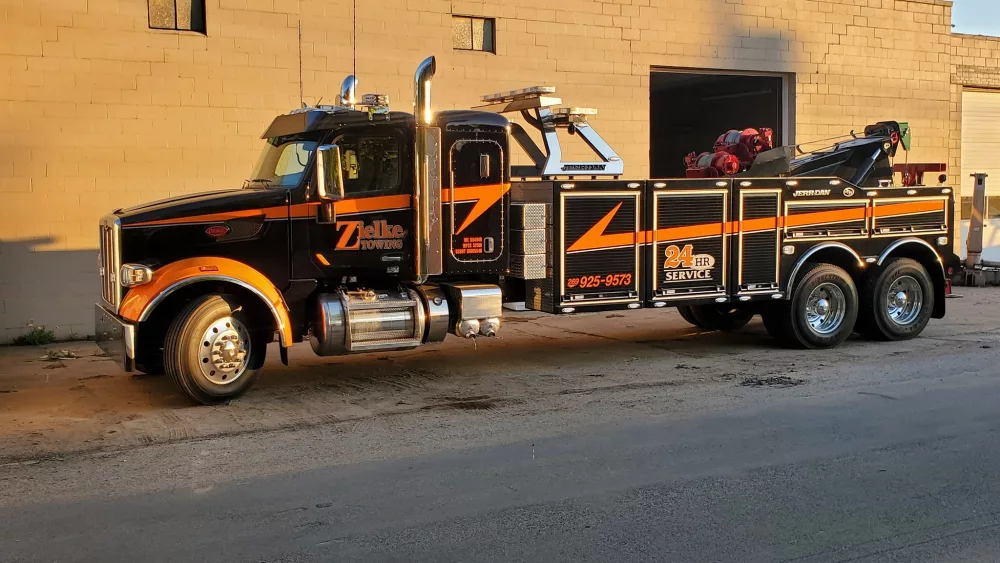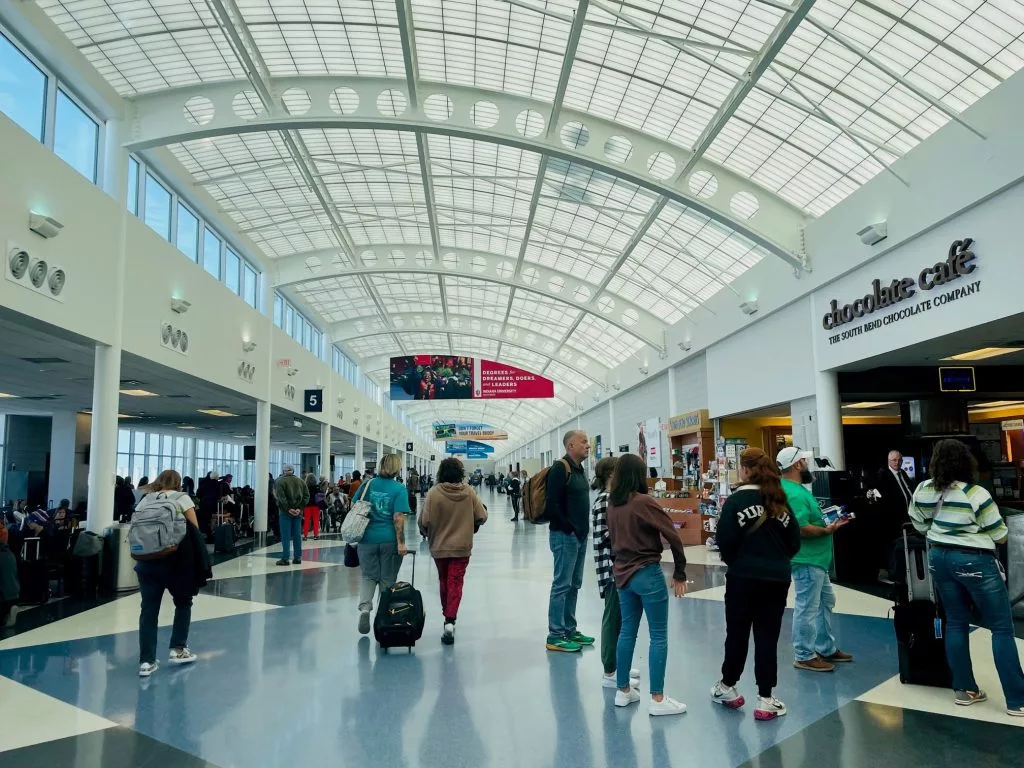

At SBN—South Bend International Airport, they proudly proclaim “Happy Starts Here!” One of the factors in creating happy travelers is a positive experience with the luggage that we all take with us when we leave home for a travel adventure—whether a weekend trip to Florida, a cruise to Alaska or an exploration of our European heritage. We want to take the right ‘stuff’ along and we want it to be easily and conveniently available to us at our destination.
A big part of making that smoothly happen is preparation before we leave, even before we do our packing. To put us on the right track for this article, we asked Julie Curtis, Vice President of Marketing at SBN for some guidance, and she wisely advised starting early and with an empty slate:
“Start making lists in advance of your trip. Check the weather forecast and plan accordingly—to a point. Always start with an empty bag. This will ensure you are not unintentionally traveling with prohibited materials or out-of-season items you won’t need.”
As Julie pointed out, much depends on where you are going and your planned activities there. Will you be just hanging out with friends or family in an informal atmosphere, or will you be attending a classical music recital in a historic European concert hall? Will you be swimming and lounging on a Caribbean or Mexican beach or hiking in the mountains while camping in primitive surroundings? It will make a big difference in your wardrobe and in what’s necessarily included in your luggage when you head to SBN for your flight.
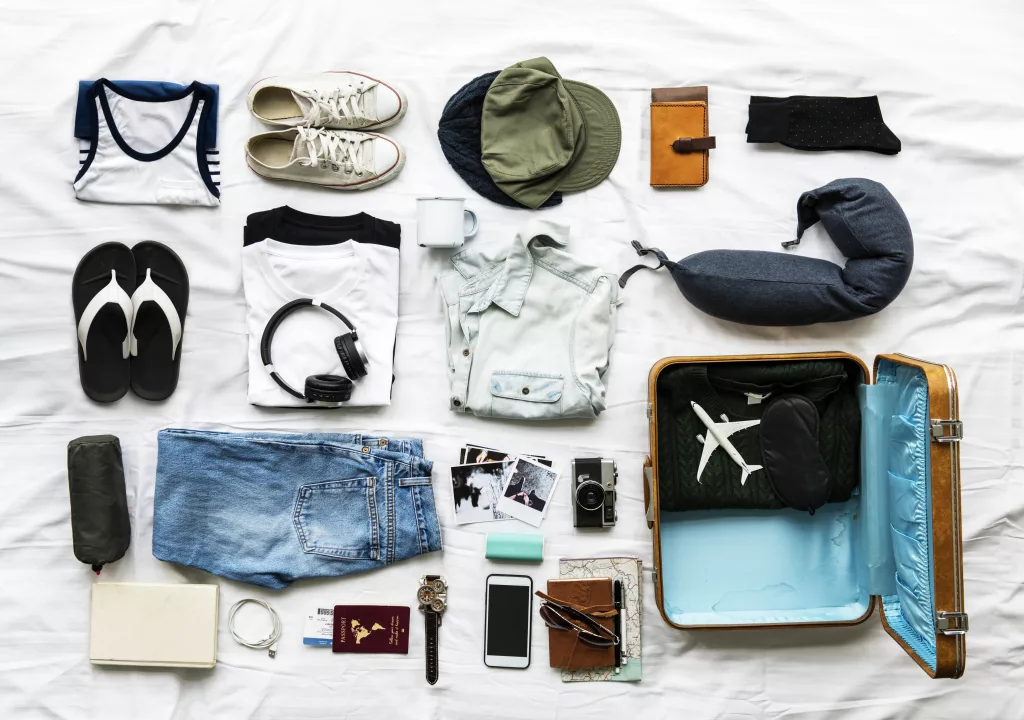
Our research tells us there are ‘packing tips’ available online for almost any destination you choose. And all of them will likely offer you suggestions for MORE than you care to bring along, especially if you are one of those travelers who dream about taking only a carry on bag for a trip of a week or more. So, we wondered if there was a system for sorting out the essentials that you really need, and that might actually allow you to travel with only a legal-size carry on bag on a trip that does not require special gear or heavy cold weather clothing.
And we found one worthy of consideration. It’s called ‘The 5-4-3-2-1 Method’.
Writer Jessica Stillman at the business site INC.com dug into several variations of this method and pronounced it well worth considering for your packing challenges.
The New York Times‘ ‘How to Pack a Suitcase’ guide claims you can get through a week away with only “five sets of socks and underwear, four tops, three bottoms, two pairs of shoes and one hat,” though the article allows you to adjust the formula to suit your needs by throwing in “a swimsuit and exercise gear or a suit jacket and dress if you’ll need them.”
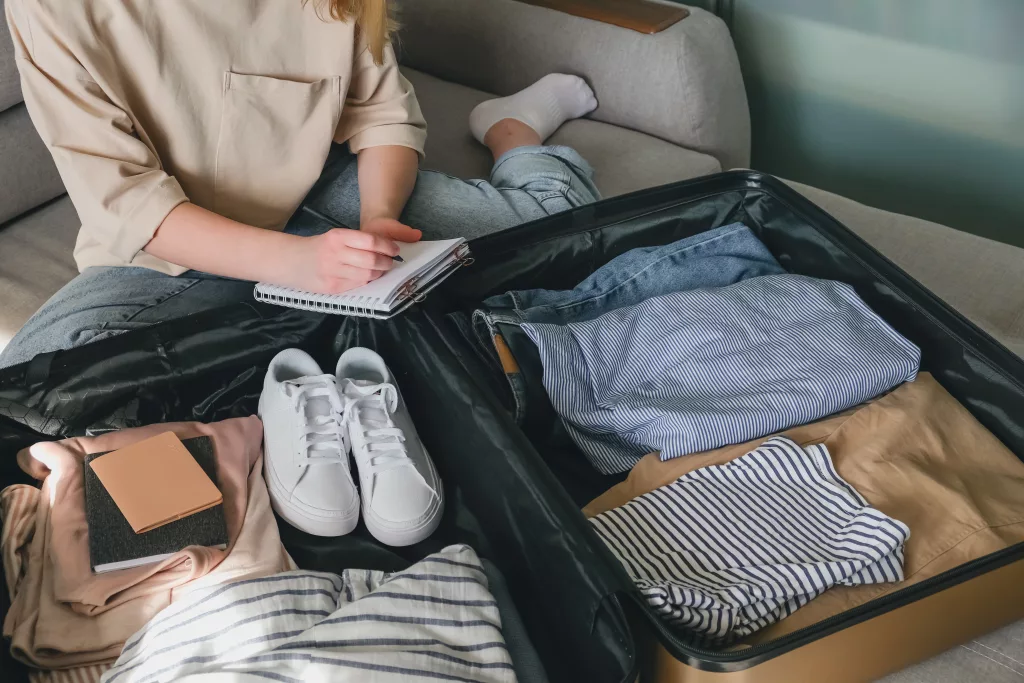
Mental Floss’ guide to packing light is more friendly to people who don’t wear dresses. Its version of the 5-4-3-2-1 method includes “five tops, four bottoms, three accessories, two shoes (a practical pair and a nice pair), and one swimsuit,” though like the Times this formula allows the wiggle room to swap out accessories based on your destination and type of travel. “If you’re going to Ireland in December, for instance, you might want to swap that one swimsuit for a windbreaker,” it sensibly suggests.
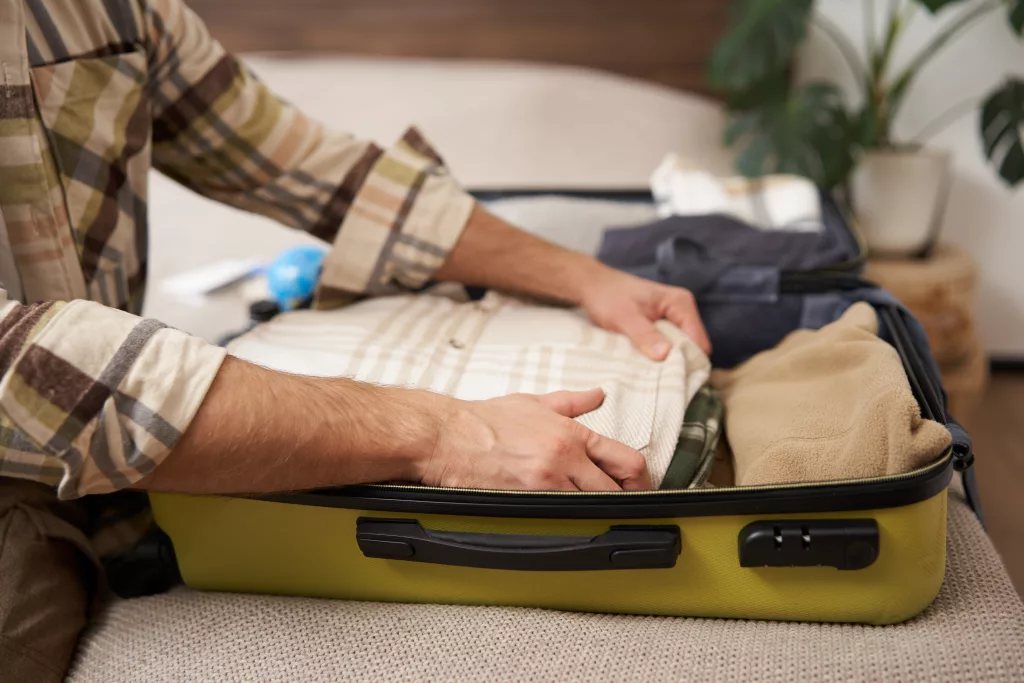
All sources, Stillman points out, stress that you should choose items of clothing in a similar color palette so that you can mix and match with ease, and that you should be prepared to do some laundry on longer trips.
All of these guides agree that you need more tops than bottoms, a few key accessories, and just a couple of pairs of shoes that work in many contexts and with many outfits. According to Stillman, they all train you to see that you can get much further with much less than you probably think. And they all offer a handy countdown to help remember what to throw in your bag.
Stillman advises that the trick is to look at these various forms of the 5-4-3-2-1 packing method and adapt them to your personal style and particular destination. Once you’ve tailored the system to you, packing light should become easier.
As you are utilizing your new-found packing prowess, it’s important that you keep three letters in mind: TSA. No matter what size, color or style your carefully packed luggage may be, it will be put to the test—the inspection—by the Transportation Security Administration—the TSA.
Your checked baggage, having been weighed and tagged by the airline, will be examined—and occasionally opened—by the TSA behind the scenes, out of your sight. Meanwhile, you and your Carry-On bags will make their way through the security lines and scanners. Fortunately, those lines are usually much shorter and less time consuming at SBN, but they still must be navigated.
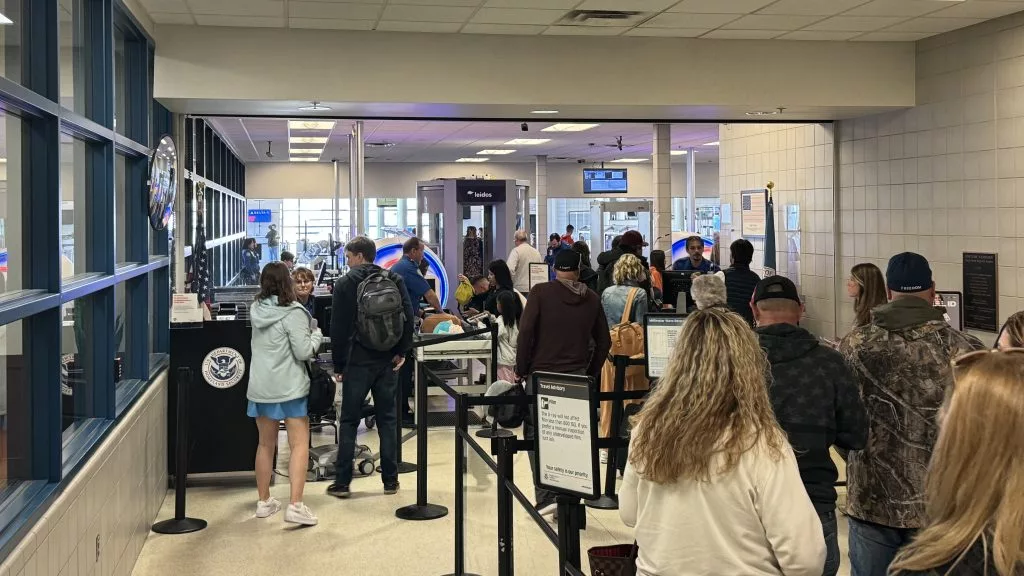
Frequent travelers take it in stride and pretty much ‘know the drill’ by now. If you don’t fly often, perhaps a review is in order. Here is a step-by-step primer from the TSA, designed to help you breeze through the security line and be on your way to your gate.
TSA Travel Checklist
Before Packing
- Liquids, gels and aerosols packed in carry-on must follow the 3-1-1 Liquids Rule:
- 3.4 ounces or less per container
- 1 quart size, clear, plastic, zip top bag (all liquids must fit in bag)
- 1 bag per passenger
- Review the prohibited items list for both carry-on and checked baggage.
- If purchasing a baggage lock, be sure to look for those that are TSA recognized.
- Tape a card with your name and contact information on your electronics.
When Packing
- Pack items in layers (shoes one layer, clothes one layer, electronics one layer, etc.)
- Firearms are only allowed in checked baggage and must be unloaded, placed in a locked, hard-sided container and declared to your airline.
- All fireworks contain explosive materials and are not permitted in checked or carry-on baggage.
- Pack large electronics on top layer of carry-on for screening accessibility.
- Place your 3-1-1 bag with liquids, gels and aerosols in the front pocket of your carry-on for accessibility.
- If traveling with a pet, be sure to bring a leash so carriers can be properly screened.
Before Entering the Checkpoint
- Eligible passengers look for the TSA PreCheck® lane for expedited screening at participating airports.
- Have your ID out for inspection.
In Standard Screening Lane
- Ensure pockets are empty (keys, tissues, currency, wallets, cell phones, etc.) and remove bulky jewelry (valuable items can be placed in carry-on).
- Remove your shoes and place them directly on the X-ray belt.
- Remove personal electronic devices larger than a cell phone from your carry-on bag and place them into a bin with nothing placed on or under them for X-ray screening. (E.g. laptops, tablets, e-readers and handheld game consoles.)
- Remember to check the bins and collect all personal belongings after going through screening.
If you travel frequently or even occasionally, it will benefit you to enroll in the TSA Pre-Check program, allowing you to avoid several of the Security Line requirements. These include removing shoes, removing laptops and liquids from bags, and usually taking off belts. These are always subject to local situational decisions by TSA personnel but are a huge benefit to travelers.
The TSA Pre-Check application process begins online at https://www.tsa.gov/precheck, then must be completed with a short in-person check-in at a TSA contractor’s office near South Bend International Airport.
If you are planning on traveling internationally, you may wish to consider the Global Entry/Trusted Traveler program, which simplifies your return to the USA from many destinations worldwide. And Global Entry automatically includes the benefits of TSA Pre-Check for domestic flights. Information on Global Entry is available here: https://www.cbp.gov/travel/trusted-traveler-programs/global-entry/how-apply
You’re probably not aware of an interesting fact we learned in preparing this story. That is that your luggage is never touched by airport-employed personnel. Luggage handling is a function of each individual airline, even as it emerges on the baggage carousel. Hence, the sometimes-differing rules, limits and procedures that prevail from one airline to another. It’s one more reason to consider specifically where you are traveling and what airline you are using as you begin planning your next journey.
The team at SBN hopes that providing you with more information about the packing and luggage aspect of air travel will contribute to an even smoother and more enjoyable experience as you utilize South Bend International Airport—where ‘Happy Starts Here’.



